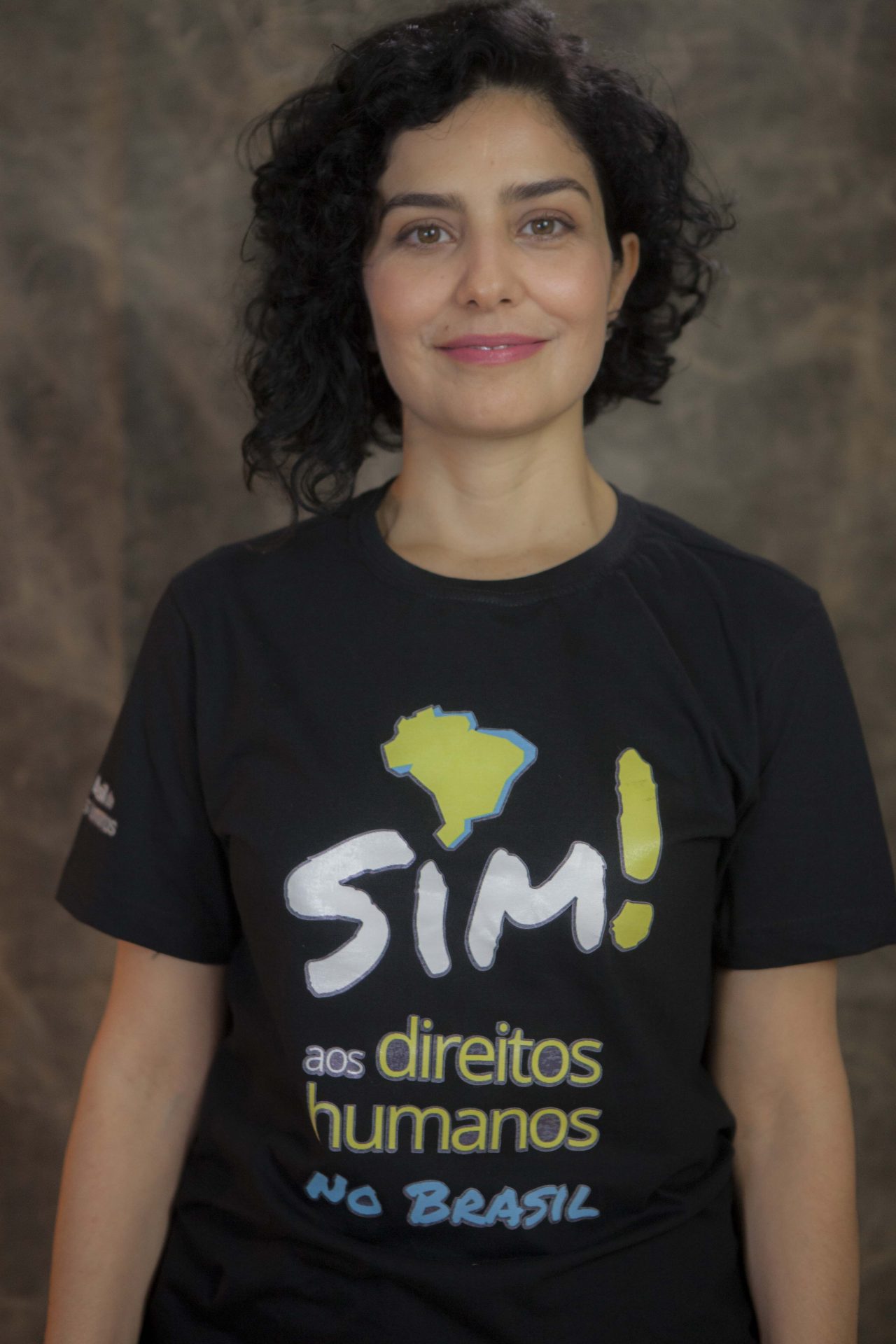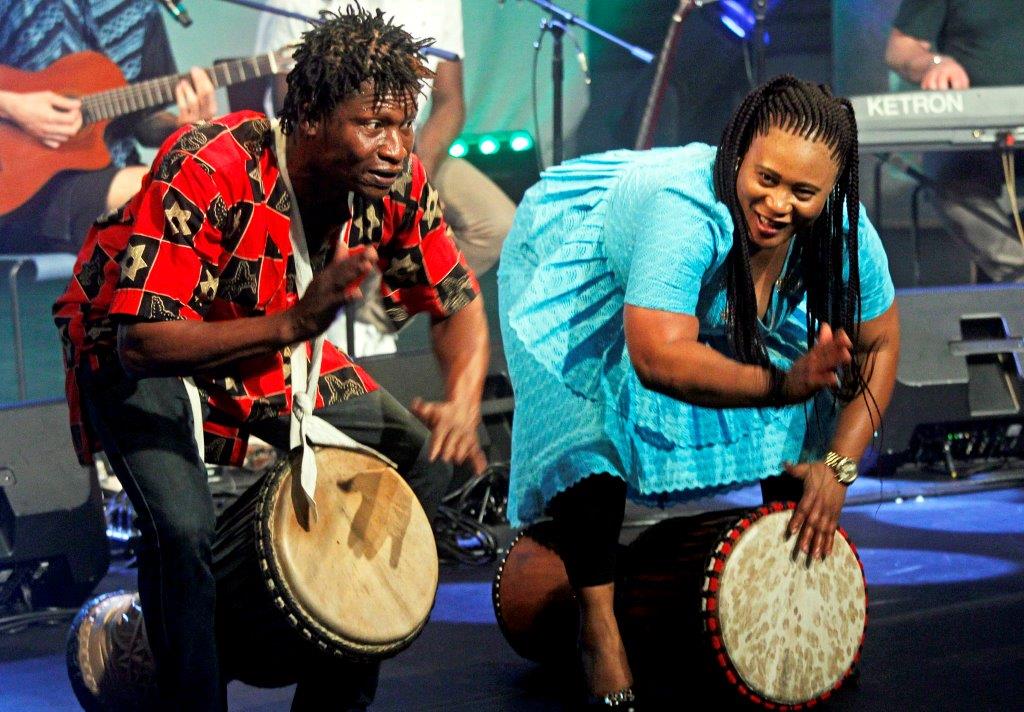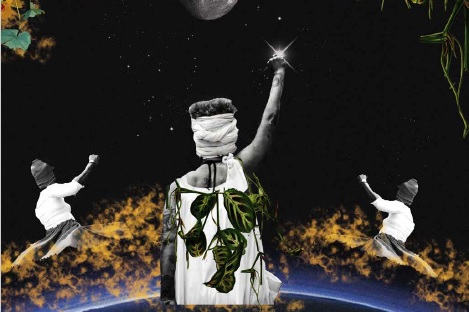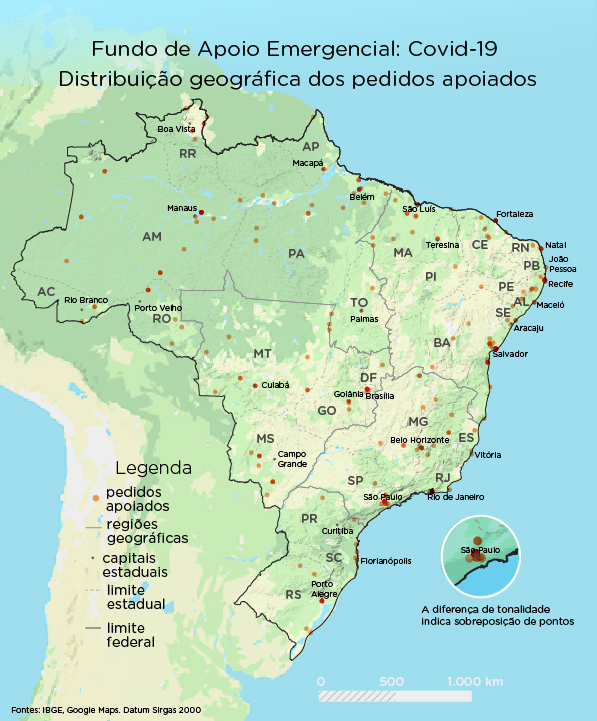“Being optimistic, if we work together, in collaboration, we can handle it”. Ana Valéria Araújo, Executive Director of the Brazil Human Rights Fund, shared this thought during the panel Collaborative Arrangements to Ground Climate Financing in the Territories, held on Friday, November 14, in Belém. The event was part of the program at The Global South House, a parallel space at COP 30 dedicated to discussing philanthropic financing flows for the Global South.
Hosted by Raízes – Indigenous Peoples and Local Communities Fund for Climate Justice, a Brazil Fund initiative, in partnership with Fundo Casa Socioambiental, the panel gathered representatives from local and territorial funds and corporate philanthropy to discuss how collaboration can expand resources and strengthen communities and territories in the fight for climate justice.
The discussion was mediated by Cristina Orpheo of Fundo Casa. Ana Valéria Araújo presented the experience of the Alliance of Funds, a coalition created during the COVID-19 pandemic to build mechanisms to support the survival of indigenous and grassroots traditional communities. Currently, the Alliance is formed by the Brazil Fund, Fundo Casa, Fundo Positivo, and Fundo Elas+.
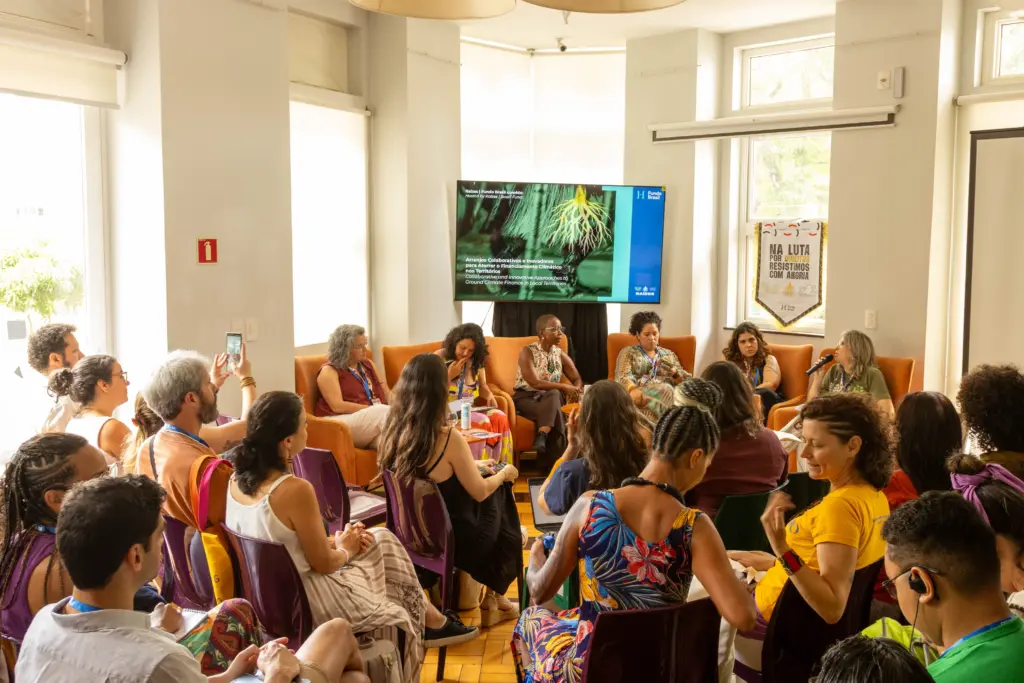 Ana Valéria reinforced that funds rooted in Brazil have extensive experience in channeling resources without bureaucracy, and possess a valuable network of relationships and trust that ensures these resources effectively reach the territories where climate solutions are created and developed every day.
Ana Valéria reinforced that funds rooted in Brazil have extensive experience in channeling resources without bureaucracy, and possess a valuable network of relationships and trust that ensures these resources effectively reach the territories where climate solutions are created and developed every day.
“Alliances help us be present in spaces we wouldn’t reach otherwise,” reflected Alda Salomão, from Fundo Tindzila in Mozambique, who is part of the Alianza Socioambiental Fondos del Sur. “I know that partners from Latin America will speak for Africa, and vice-versa.”
Geórgia Nicolau, Executive Director of Procomum Institute, brought to the debate the experience of the Territorial Alliance (Aliança Territorial), composed of 7 organizations deeply rooted in specific territories—a central, yet not exclusive, identity. She described joint agenda-setting processes and participation mechanisms that materialize a shared governance with the communities. According to Geórgia, this approach, now present in over 400 municipalities, relies on building trust, which is understood as a social and political practice that is permanently evolving.
The Territorial Alliance is formed by Casa Fluminense, Funbea (Brazilian Fund for Environmental Education), Instituto Baixada, Icom, Procomum Institute, Redes da Maré, and Tabôa.
Grace Iara Souza, an articulator for the Alliance for the Amazon and Beyond, reported on the creation of a Pooled Fund involving 11 international funders. By adopting a single application form and a single support process, this arrangement de-bureaucratizes the allocation of resources to the territories. “We need to avoid reproducing the colonial dynamics that brought us here,” she said.
Natália Cerri, from the Itaúsa Institute, reflected on the role played by corporate philanthropy on strengthening territories in order to give visibility and scale up local climate solutions. She reminded us that Brazilian corporate philanthropy does not give as much as it could, and that running its own initiatives isn’t always the most efficient path. According to Natália, Itaúsa learned this by partnering with the Brazil Fund to support indigenous initiatives in bioeconomy. At a COP marked by heavy corporate participation, Natália pointed out that the climate crisis impacts all businesses and requires real engagement.
Concluding the panel, Cristina Orpheo highlighted a common trait among Global South funds: relationships sustained by building connections and collaborative practice. Throughout the conversation, it became evident that alliances, when forged with responsibility and respect for the territory, produce results that no single actor could achieve in isolation.
“Collaboration isn’t about being nice. It’s nice to collaborate, of course, but it’s about seeking real results in the territories, results that change lives,” concluded Geórgia Nicolau, from the Procomum Institute.






















